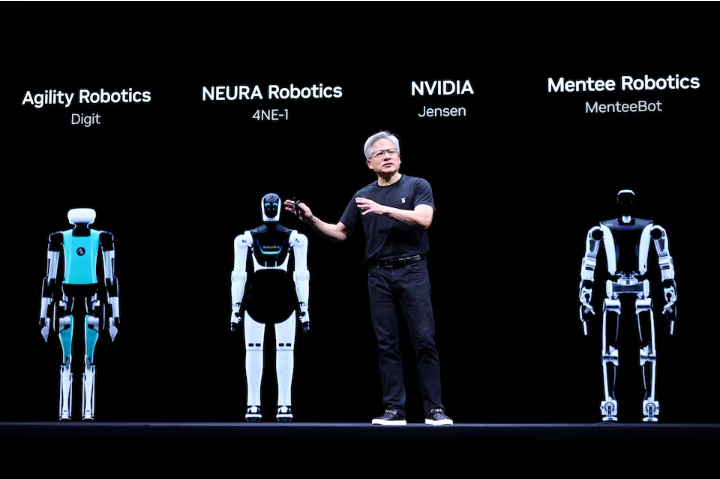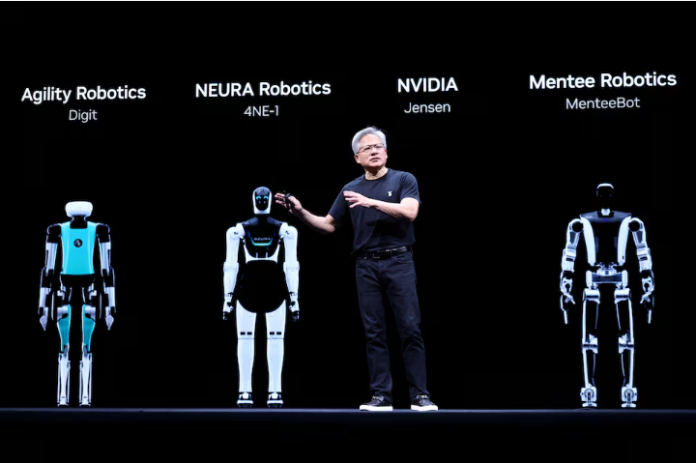In a groundbreaking move, Nvidia and Foxconn are reportedly working together to bring humanoid robots into full-scale production at a new AI server factory in Houston, Texas. According to insiders, this will be the first time humanoid robots are used to build Nvidia’s cutting-edge GB300 AI servers—and the first time Foxconn is deploying such advanced robotics on a U.S.-based production line.
Sources familiar with the project revealed that both companies aim to have the robots operating by Q1 2026, just as the factory begins rolling out Nvidia’s AI servers. This marks a significant leap toward the future of AI-powered manufacturing, potentially setting a new industry standard.
What’s Known So Far
While neither Nvidia nor Foxconn has officially commented, sources say Foxconn has been testing various humanoid robots, including its own in-house models and units developed by China’s UBTech. These robots are being trained to perform key manufacturing tasks such as object manipulation, cable insertion, and precision assembly—functions traditionally handled by human workers.
A presentation shared by Foxconn in May hinted at these capabilities, though details about the specific robots to be deployed in Houston remain under wraps. It’s unclear how many units will be installed initially or whether they’ll be walking humanoids or wheeled versions (AMRs – Autonomous Mobile Robots), both of which Foxconn is expected to showcase at its annual tech event in November.
Why Houston?
One of the reasons the Houston site was selected is its modern infrastructure and ample space, making it ideal for automation. The factory is one of several planned by Nvidia as part of its expansion into AI supercomputer manufacturing in the U.S. Another plant, in Dallas, is being developed in partnership with Wistron.
For Nvidia, this step goes beyond manufacturing efficiency—it demonstrates a deeper commitment to AI robotics. The company already provides development platforms for humanoid robot makers, and this factory project may accelerate adoption across industries.
A Trend Gaining Momentum

Nvidia CEO Jensen Huang has long predicted that humanoid robots will become widespread in industrial settings within five years. Other major companies are moving in the same direction.
Tesla is developing its own line of humanoids, while automakers like Mercedes-Benz and BMW have begun testing robots on their production floors. Meanwhile, China is aggressively investing in humanoid robotics as it looks to automate factory work at scale.
If successful, the Nvidia-Foxconn partnership could be a model for the future of smart factories—where AI, automation, and humanoid robotics converge to transform how things are built.



